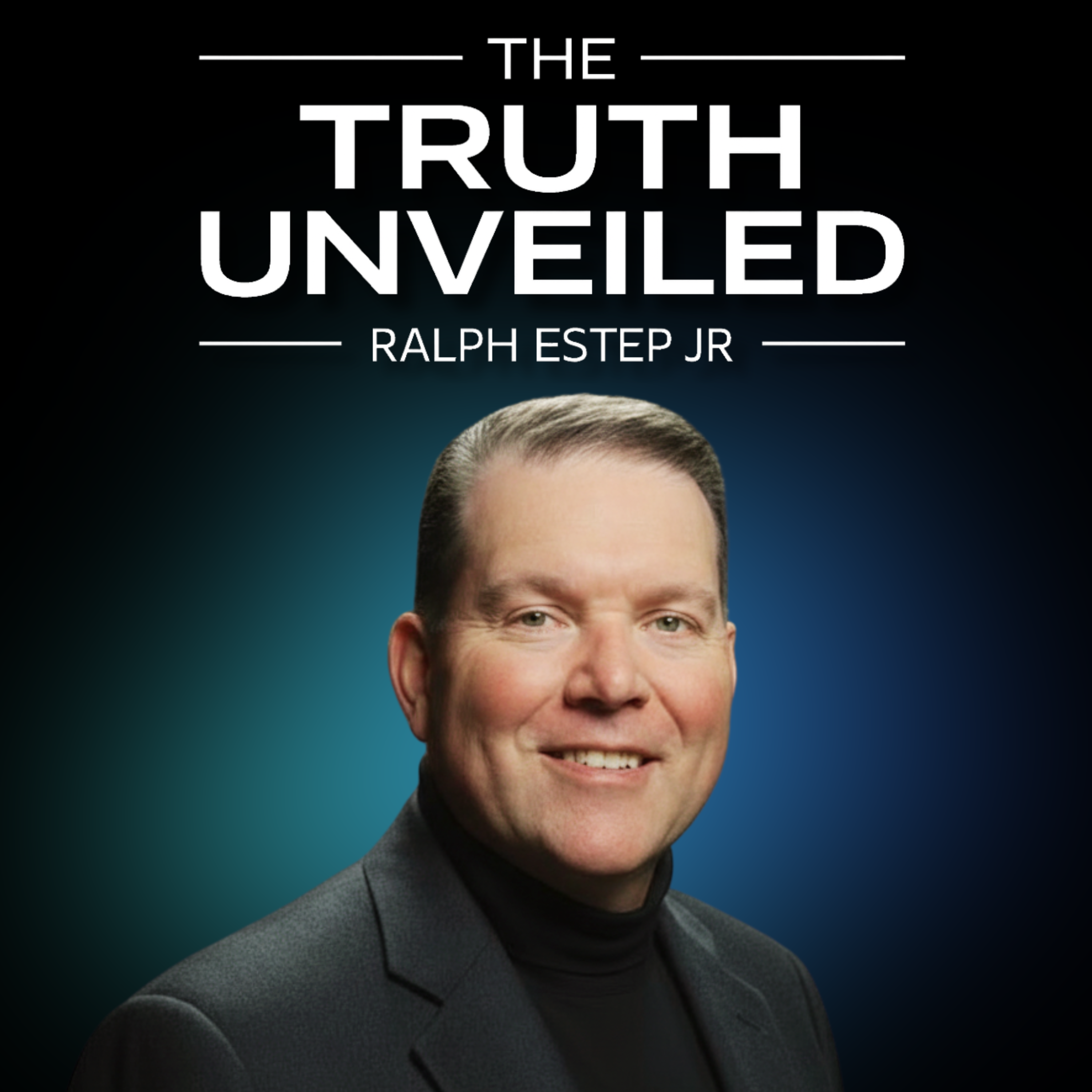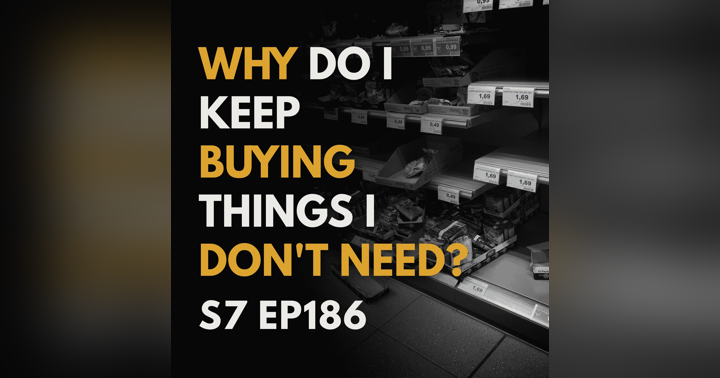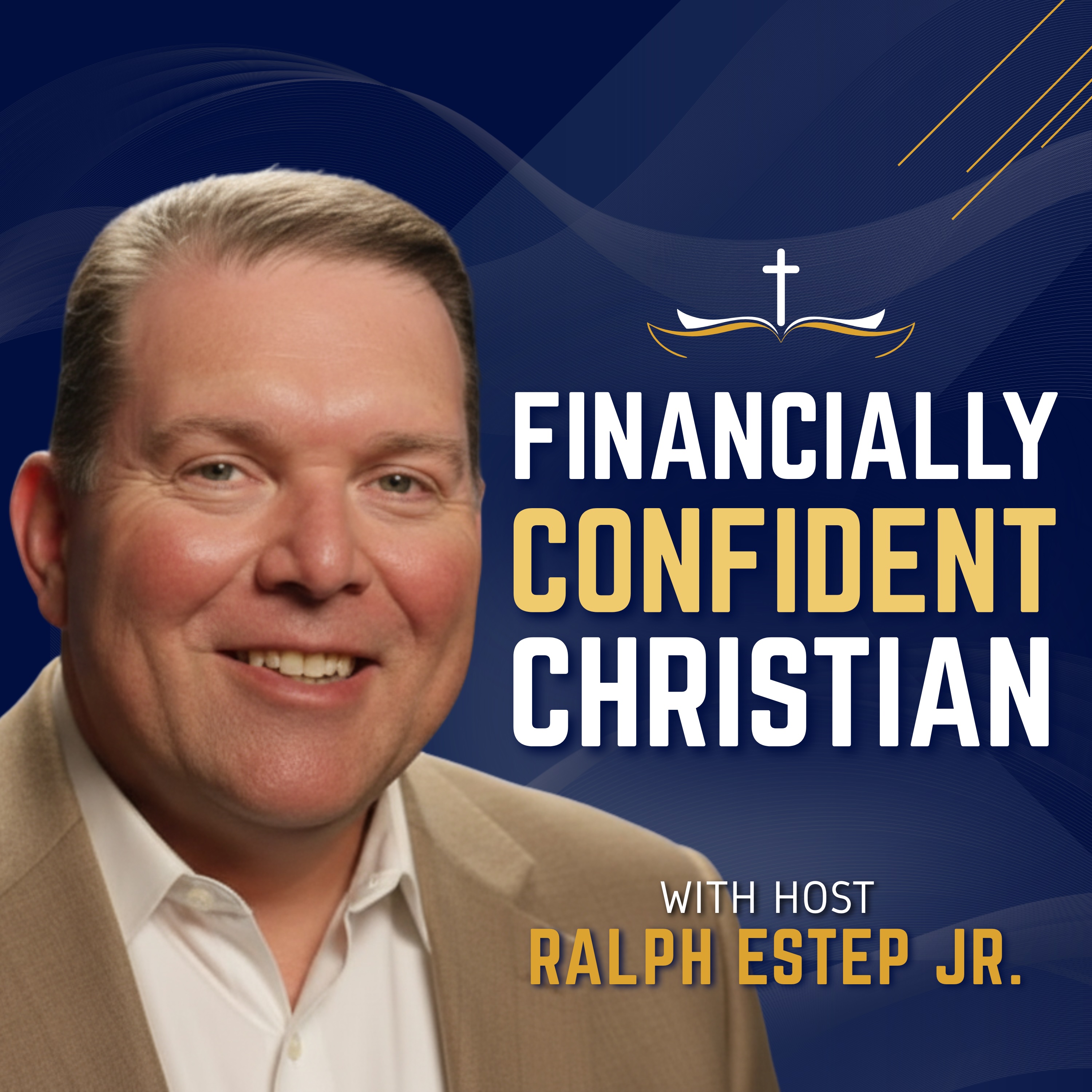Why Do I Keep Buying Things I Don't Need?
Have you ever come home with a bag full of purchases only to wonder later why you bought them? In this episode of Financially Confident Christian, Ralph uncovers why so many of us get stuck in a cycle of impulse spending, how marketers prey on our emotions, and why our hearts are often searching for something deeper than just “more stuff.” Ralph shares practical and faith-based strategies to help you break free from the patterns that lead to buying things you don't need.
Check out the full podcast episode here
Ralph offers actionable ideas like identifying your spending triggers, creating intentional pause strategies, and even a no-spend challenge to help you reset your habits. You’ll discover how aligning your purchases with your values and anchoring your peace in God’s provision can lead to more freedom, less guilt, and a healthier relationship with money.
Chapters:
- 00:12 - Breaking the Cycle of Materialism
- 01:07 - Understanding Impulse Buying and Its Triggers
- 04:28 - Identifying Impulse Triggers
- 06:44 - Breaking the Cycle of Impulsive Buying
- 11:16 - Breaking the Cycle of Financial Shame
Takeaways:
- Recognize that impulse buying often stems from emotions like boredom or insecurity.
- Understanding your triggers is key to breaking the cycle of unnecessary spending.
- Applying the awareness plus pause equals self-control strategy can help manage spending habits.
- Intentional living means aligning your purchases with your core values and financial goals.
Links:
financiallyconfidentchristian.com/master
💛 Join the Financially Confident Christian Community
If today’s episode encouraged you, we’d love to invite you to be part of something bigger — the Financially Confident Christian Community.
This is where faith and finances come together — a growing family of believers supporting one another, sharing encouragement, and helping spread God’s truth about money.
Your membership helps keep the show free for everyone while funding new devotionals, study guides, and outreach resources.
👉 Learn more and join the mission at financiallyconfidentchristian.com/join
Together, we’re helping believers everywhere break the cycle of financial shame and live with confidence in Christ. 🙏
Get Ralph's Book on becoming a Financially Confident Christian financiallyconfidentchristian.com/becoming
WATCH NOW ON YOUTUBE (OUR VIDEO VERSION)
WATCH NOW ON RUMBLE (OUR VIDEO VERSION)
Please share our Podcast with all your friends and family!
Submit your questions or ideas for future shows - email us at
ralph@askralph.com or leave a voicemail message on our podcast page
Mentioned in this episode:
Post roll for Book Becoming
Thank you for listening to the Ask Ralph podcast. We encourage you to follow us on our social media pages and rate our show. For more information about the topics discussed on the podcast visit Saggio Accounting+PLUS.
00:00 - Untitled
00:27 - Untitled
00:40 - Breaking the Cycle of Materialism
01:35 - Understanding Impulse Buying and Its Triggers
04:56 - Identifying Impulse Triggers
07:12 - Breaking the Cycle of Impulsive Buying
11:43 - Breaking the Cycle of Financial Shame
You ever brought something home, then instantly regretted that purchase.
Ralph:Or maybe you feel like you're in this cycle of constantly acquiring
Ralph:things, but still searching for true satisfaction in your life.
Ralph:Well, what if you could understand the why behind that and why you
Ralph:keep buying things you don't need?
Ralph:And finally, break free from that cycle.
Ralph:I want you to stick with me today 'cause I'm gonna show you exactly how
Ralph:to make that happen on today's show.
Ralph:Hey there.
Ralph:Welcome back to your Daily, financially Confident Christian.
Ralph:I'm Ralph and it's great to be with you again.
Ralph:Today we continue on our pursuit, answering that question of how can I
Ralph:become a financially confident Christian?
Ralph:And we're in our series Beyond the Budget, finding Financial
Ralph:Freedom through Intentional Living.
Ralph:And if you've been following along, you know, so far we've covered contentment.
Ralph:We talked about gratitude, we talked about spending by values, and today
Ralph:we're gonna answer a more difficult question, and that is, why do I
Ralph:keep buying things I don't need?
Ralph:I think it's a great question because if you're like me, you feel this at
Ralph:times, maybe you're feeling it right now, and think about it like this.
Ralph:You go for one item at the grocery store.
Ralph:This is the typical situation, right?
Ralph:I gotta go in and just grab one thing, but then you come out with five.
Ralph:Or maybe you're online shopping or you're walking through Target or something
Ralph:and a deal just grabs your attention and you feel fantastic for the moment,
Ralph:oh, these shoes are fantastic, or, or this, sure, oh, I gotta have this shirt.
Ralph:Then later you just feel regret and you're stuck in this impulse buy cycle.
Ralph:And I'm betting right now you're saying Ralph, that's familiar to
Ralph:me and boy, that is frustrating.
Ralph:And in the end All it does is adds clutter.
Ralph:It drains our savings and it brings guilt.
Ralph:'cause you're working hard, you're working so hard, I know you're working
Ralph:hard, but your money just disappears.
Ralph:And I'm gonna say something rather bold right now in my personal view.
Ralph:The core issue is you're buying isn't aligned with your
Ralph:values or intentional living.
Ralph:That's really what it comes down to.
Ralph:So here's the thing, and companies know how to manipulate your spending habits.
Ralph:There are teams of people spending every minute to try to figure
Ralph:out how to make you buy more, how to buy additional things.
Ralph:And they prey on your emotions.
Ralph:They prey on them.
Ralph:That's their job.
Ralph:They pray on boredom.
Ralph:Hey, I've got nothing to do.
Ralph:I'm bored.
Ralph:They pray on insecurity.
Ralph:Oh, you gotta have this.
Ralph:They prey on stress.
Ralph:And most of the time as we're doing this, we're trying to fill a void, a word.
Ralph:We're trying to find some momentary joy in the tough situations in life.
Ralph:Look at the book of Ecclesiastes chapter five.
Ralph:Verse 10 says this, whoever loves money never has enough.
Ralph:This too is meaningless.
Ralph:Let's just park there for a second and let's, let's, let's dissect this.
Ralph:Whoever loves money, the love of money, if that's where your
Ralph:love is, what does the word say?
Ralph:You never have enough.
Ralph:Why is that?
Ralph:Because you're buying to, so the motion or you're buying to gain approval,
Ralph:those things will never satisfy you.
Ralph:So how do you break out of it?
Ralph:You recognize your triggers because once you recognize your triggers, you're
Ralph:going to be able to respond wisely.
Ralph:And listen, this isn't about shame.
Ralph:This is about living in a sense of stewardship.
Ralph:That's what this show is all about, and it's choosing intentionality,
Ralph:that is the big word for this new series, choosing intentionality.
Ralph:When you make that choice, it is powerful and it is absolutely freeing.
Ralph:So now you're asking Ralph, what can we do?
Ralph:How do you stop buying what you don't need?
Ralph:And I kind of mentioned it a minute ago, the simple solution is to
Ralph:identify your impulse triggers and create delayed base strategies.
Ralph:I want you to remember this simple phrase, awareness.
Ralph:Plus pause equals self-control.
Ralph:I'm gonna say that one more time 'cause it's, you gotta
Ralph:commit this to memory awareness.
Ralph:You're aware and you take that pause that equals self-control.
Ralph:So here's your one action step for today.
Ralph:To really get to the point of breaking that cycle, I want you
Ralph:to identify one or two impulse triggers, and I want you to do this.
Ralph:I want you to apply this exercise to that.
Ralph:When you do that, when you start thinking about those impulse triggers, think about
Ralph:where you were and what you were feeling.
Ralph:Let's talk about some of those examples right now.
Ralph:So let's say it's the end of a day.
Ralph:You're laying in bed, you're tired, and you're scrolling at night.
Ralph:Okay?
Ralph:So where were you?
Ralph:You were laying in bed after a long day.
Ralph:You got your phone in hand, okay, you got the picture.
Ralph:What were you feeling?
Ralph:Now if you're like many of us, you're feeling drained.
Ralph:Been a long day.
Ralph:This happened, this crisis at work, this crisis with the kids, and you're
Ralph:just looking for some comfort or you're looking to just have a minute to escape.
Ralph:So what's the trigger here?
Ralph:The trigger here is pretty straightforward.
Ralph:Emotional fatigue, that's a problem.
Ralph:Late night scrolling on Instagram or Amazon, there's your trigger.
Ralph:How about this one?
Ralph:Maybe you're bored at work.
Ralph:It's a mid-afternoon.
Ralph:You're in that mid-afternoon slump.
Ralph:So where were you?
Ralph:You're sitting at the desk after a soy afternoon, you had the lunch.
Ralph:And here like me, three o'clock comes, you're like, I need a nap.
Ralph:So let's ask the next question.
Ralph:How are you feeling?
Ralph:Well, I'm feeling bored.
Ralph:I'm feeling tired.
Ralph:I'm feeling unmotivated.
Ralph:So what do you do?
Ralph:You're right there in front of your computer working.
Ralph:Let's just say you working a desk job or you're right there, have your
Ralph:phone, you're feeling boredom, and you got easy access to online shopping
Ralph:during work breaks is a trigger.
Ralph:This is my final example for today.
Ralph:That fear of missing out pressure from friends.
Ralph:Let's say you're in the middle of a group chat and you're buzzing about a
Ralph:new sail, or one of your friends has got this new pair of jeans or whatever
Ralph:the cool things are these days, or, or maybe somebody's going on a weekend trip.
Ralph:That's where you were.
Ralph:That's that's where you were, right?
Ralph:What are you feeling now?
Ralph:Well, Ralph, I was feeling left out.
Ralph:I was feeling, I was afraid I was gonna miss something.
Ralph:What's the trigger there?
Ralph:Well.
Ralph:social pressure, right?
Ralph:And you're afraid you're gonna miss out on something you're wanting to fit in.
Ralph:So here's the challenge for today.
Ralph:Real simple.
Ralph:I want you to just write down your top one or two triggers.
Ralph:What are those triggers for you?
Ralph:Is it that boredom at night?
Ralph:Is that boredom in the middle afternoon?
Ralph:Is that fear of missing out and that social pressure?
Ralph:So now you know your triggers.
Ralph:Well, here's the antidote to the triggers.
Ralph:Here's how you really break outta that cycle.
Ralph:I want you to create a simple rule for yourself.
Ralph:What I'll call the pause, give you a couple examples.
Ralph:Let's say that you're shopping online, Amazon, wherever you like to shop.
Ralph:Maybe you're even on Facebook or some social media.
Ralph:See these shoes?
Ralph:You gotta have a $75 pair of shoes online.
Ralph:But here's your rule.
Ralph:You're gonna set this rule ahead of time.
Ralph:You're gonna say, here's the deal.
Ralph:I am not gonna buy anything till it sits in a cart for 48 hours.
Ralph:So what do you do?
Ralph:You add those shoes to your cart, you set the reminder for four, eight hours,
Ralph:and then after two days you come back and you realize, guess what, Ralph?
Ralph:I didn't really need them, and you're glad you didn't waste that money.
Ralph:So that's one option.
Ralph:The four eight hour for you.
Ralph:Hey, maybe for you, it's a one week rule.
Ralph:Here's another thing you can do.
Ralph:That's what I call the three check filter.
Ralph:So whenever you go to buy something, ask yourself these three questions.
Ralph:Number one.
Ralph:Does it align with my values?
Ralph:We talked a lot about that yesterday.
Ralph:Is it a value of simplicity?
Ralph:Is it a value of financial freedom being outta debt, whatever.
Ralph:It's ask yourself, does it align with my values?
Ralph:Second question, is it in my budget?
Ralph:Have I already allocated this money?
Ralph:Is the money in my sames got where it is?
Ralph:Is it in my budget?
Ralph:So does it align my values?
Ralph:Is it in my budget?
Ralph:Third thing, do you truly need it or is this just an emotional buying situation?
Ralph:There we go.
Ralph:The pause, the three check filter.
Ralph:I'm gonna throw one more at you 'cause I think this will really be impactful.
Ralph:A lot of people don't think of this one.
Ralph:This is Ralph's big pro tip for today.
Ralph:Make it manual, What is that?
Ralph:What does Ralph mean by that?
Ralph:Here's what you want.
Ralph:I want you to do, go to all your shopping app sites and remove your credit cards.
Ralph:Don't even have 'em on the site.
Ralph:Why?
Ralph:'cause I want you to have extra effort in entering those details,
Ralph:which is gonna give you space to think about, do I really need this?
Ralph:'cause see, it's so easy.
Ralph:It's easy for me.
Ralph:Amazon's got three or four of my credit cards tied to it.
Ralph:I can be wherever and just scroll.
Ralph:Oh, beautiful.
Ralph:I want that.
Ralph:Click here, buy now.
Ralph:That's what they want.
Ralph:That's what the, that's what the store, that's what the retailers want you to do.
Ralph:Put a little friction there for yourself.
Ralph:Make it manual.
Ralph:And here's a little bonus thing, maybe you wanna do this, have
Ralph:what I call a no spend challenge.
Ralph:Maybe pick a Saturday and say, I'm gonna play a game where I'm only
Ralph:buying essentials on Saturdays.
Ralph:Gas, groceries, things you have to have no coffee runs, no browsing Target to
Ralph:just take a look, just no spend Saturday.
Ralph:But I'm gonna add a little piece to that and I'm, giving a couple little
Ralph:extra things today, but I want you to write down the urges that you feel.
Ralph:And at the end of the week, go back and look at those urges and write
Ralph:down how much money you saved.
Ralph:Boy, that is going to be impactful to you.
Ralph:How about we pray together, Father God, we just want to thank you for
Ralph:your provision in our life, Lord.
Ralph:And we confess, Lord, that we often buy from emotion, we don't do it
Ralph:with intention, Lord, we don't put it through that three test.
Ralph:So Lord, we just ask you right now to help us spot our triggers, help
Ralph:us see what those things are and strengthen that self-control, that
Ralph:awareness, pause, self-control.
Ralph:And Lord, just teach us to find joy and teach us to find peace in you,
Ralph:not in purchases, not in stuff.
Ralph:And bigger than that, Lord, let us help our finances reflect your purpose in our
Ralph:lives, and we ask this in confidence.
Ralph:In Jesus' name, Amen.
Ralph:Listen to me.
Ralph:Break the buying cycle brings peace and it brings freedom.
Ralph:So know your triggers.
Ralph:Pause before your purchases and challenge yourself today and listen, if this
Ralph:show has been impactful to you, if this specific episode has made a difference
Ralph:to you, I wanna encourage you right now, share this episode with someone else.
Ralph:A lot of people are dealing with financial cycles and financial stress
Ralph:and the shame that goes along with that.
Ralph:And this show, this particular episode, could really reach out to them.
Ralph:So send 'em a text and say, Hey, I listened to this guy Ralph.
Ralph:Here's a link to his website.
Ralph:It's financially.
Ralph:Confident christian.com or go right onto your podcast episode, or maybe
Ralph:you're watching this on YouTube and just click share and send it to
Ralph:somebody that could be impacted by this.
Ralph:I also wanna give you a free gift.
Ralph:If you go to my website, again, that's financially
Ralph:confident christian.com/master.
Ralph:You get a free copy of my book, it's called Mastering Your Finances.
Ralph:It's a short read, but it is super impactful.
Ralph:I'm gonna encourage you to do that again.
Ralph:That's it.
Ralph:Financially confident christian.com/master.
Ralph:Now, tomorrow on the show, we're gonna talk about how to stop chasing
Ralph:what others have and break free from that cycle of comparison.
Ralph:Kind of goes along with what we're talking about today.
Ralph:So I'm gonna encourage you, don't miss it.
Ralph:Now, let's all go out there and be financially confident.
Ralph:Christians, you can do this.
Ralph:I truly believe in you.
Ralph:Believe in yourself.
Ralph:Stay financially savvy.
Ralph:God bless you, and you have a great day today.














